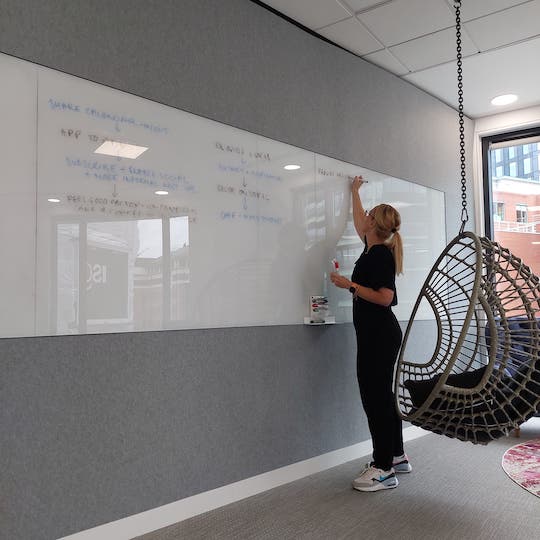
According to the World Economic Forum, critical thinking and problem-solving skills are at the top of the skills list that employers believe will grow in prominence over the next five years. Yet we continue to passively meander through our working week; going to meetings where there’s no one leading and there are too many invitees, observing team members who are distracted or doing something else. We leave the room feeling frustrated at the time wasted, and none the wiser on how we’re going to solve the problem we came together to discuss.
A few stats I found on time wasted in meetings (US research):
· 71% of senior managers believe meetings are unproductive and inefficient
· Only 50% of employees feel their ideas are heard during meetings
· An estimated 50% of meeting time is spent on irrelevant topics
· Companies with fewer than 50 employees waste an average of $18k per year on unproductive meetings, whilst for companies with over 100 employees it’s an average of $420,000
What if we turned these lazy, lacklustre meetings into something positive? What if we started running bite-sized workshops instead, putting our energy into creating experiences for participants to problem-solve together?
Do workshops take more time and effort to plan?
Initially, yes. But … the more you do, the more confident you’ll become, and the quicker you’ll be at designing activities that actually help solve problems, where everyone leaves the room with an agreed plan of action that’s been created by you all.
What’s the difference between a meeting and a workshop?
I use the following distinction to guide me. If your goal is simply to share or exchange information then a meeting will suffice. If your goal is to solve a problem where you need input from people with different skills and experience (those skills and experience will be based on the topic and outcome you’re after), and that will result in actionable options, then try running a workshop.
5 tips to get you started
1. Only invite participants who will contribute, and have a diverse set of skills and experience
2. Share the workshop purpose and goals with participants beforehand, so they know what to expect. And don’t be afraid to give them pre-work to help get them into the zone beforehand
3. Design activities that will play to the strengths of the participants and different learning styles – consider a mix of discussion, individual reflection and group work
4. Don’t be afraid to flex the agenda if you feel like another way might be more effective in achieving your goal
5. Always capture actions with owners at the end, to ensure you keep up momentum after the workshop
New year challenge – facilitating positive change
Give it a go in January, and let me know how you get on … Tell your team and clients that you’re trying something different, and encourage them to do the same.
If you need help, get in touch. I’m running a Workshop Wizardry ‘workshop’ on 31st January, which will be packed with handy tools and techniques to build your workshop confidence. I also offer tailored in-house sessions with your team with 20% off for BCI members.
I’m an independent consultant and training specialist, helping businesses and teams find new ways to solve problems, embrace change and put plans into action. I share practical advice, tools and frameworks that enable you to reach your full potential.
You need to load content from reCAPTCHA to submit the form. Please note that doing so will share data with third-party providers.
More Information